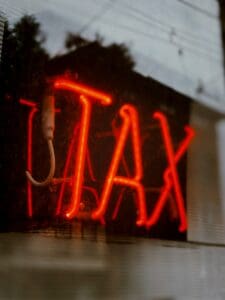Replacing the raft of recovery benefits with a simple, permanent guaranteed income would be an automatic stabilizer for people and the economy.
By: Evelyn L. Forget
When COVID-19 put the economy on hiatus in March, Employment Insurance (EI) was insufficient to ensure displaced workers had access to enough money to meet their basic needs. That’s why a permanent program such as a guaranteed minimum income is needed now more than ever.
The Canadian government implemented the Canada Emergency Response Benefit (CERB) on March 15. A simple application process that made use of online accounts, coupled with a directive to administrators to wait until people’s lives had stabilized before assessing eligibility, ensured that applicants had money within days.
After such a smooth ride with CERB, it was reasonable to expect that the transition to other benefits might work equally well. So what happened?
CERB ended in October, but replacement benefits were not in place at that time.
Two weeks later, people whose jobs had still not returned were able to apply to replacement programs – a more generous Employment Insurance (EI) and the Canada Recovery Benefit (CRB).
To ensure that the CRB went only to people who “deserved” it, applicants were required to confirm that they were willing and able to work, even though such a claim is unenforceable. Those with caregiving responsibilities turned to the Canada Recovery Caregiving Benefit (CRCB), while those required to isolate sought out the Canada Recovery Sickness Benefit (CRSB). Each recovery benefit pays a flat sum of $500 per week ($450 after taxes withheld), but the treatment of earned income and tax obligations differs dramatically.
Those on EI receive between $500 and $573 a week before federal, provincial and territorial taxes are withheld at source. Those on CRB have 10 per cent of taxes withheld at source but are cautioned that they might need to pay more in April depending on their income. CRB benefits are reduced once other income reaches $38,000 a year, at which point some applicants can face a whopping marginal effective tax rate, while EI benefits are reduced by 50 per cent of earned income from the first dollar.
Application has been a bureaucratic nightmare. Individuals have had to wait for their eligibility to be verified, which further delayed payment.
Applications were not automatically transferred to the appropriate program and applying to the wrong one meant rejection with no additional information, along with long waits on the telephone.
None of these programs, however, helped the poorest Canadians – those subsisting well below the poverty line on provincial disability or income assistance.
These individuals have faced higher costs because of the pandemic but have been unable to access assistance from the charities also shuttered by COVID that supplemented their meagre incomes for emergency support. A miserly one-time $600 payment for people with disabilities was still mired in bureaucracy six months after the initial shutdown.
So, how would a guaranteed minimum income help?
A permanent program would be an automatic stabilizer for a volatile economy. It would assure enough money to meet the basic needs of anyone who has lost income because of a pandemic, a recession, or a personal crisis like a job loss or a death in the family.
We wouldn’t have to rely on politicians and civil servants to dream up emergency programs to be offered on a one-time basis to meet long-standing gaps in the system. Since there is no need to determine whether or not someone deserves support, there is no need to have three programs – CRB, CRSB and CRCB.
Applicants would not be confused about where or how to apply or what their tax obligations may be. A single program, rather than a raft of slightly different programs, means that the bureaucracy involved in adjudicating eligibility would be much simpler and, presumably, faster.
Applicants could report their income from all sources monthly or bimonthly through online accounts. Income tax could be withheld at source so there are no unwelcome surprises in April when income taxes are due. The benefit could be reduced gradually as other income increases so there is no barrier or risk involved in accepting a job offer.
Expanding the program to replace income assistance for people without a sufficient job history would improve their lives and allow everyone to access job-training programs.
Most importantly, it would be an automatic stabilizer.
A permanent guaranteed minimum income would be available whenever a calamity like COVID-19 strikes, automatically ramping up to meet needs. It would also automatically contract as the pandemic wanes and jobs return.
When people have other opportunities, they accept jobs and, with a regular wage, they need less support or none at all from a guaranteed minimum income, research shows. But the program would be permanent, ensuring financial security whenever the need appears.





















